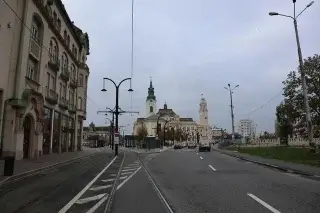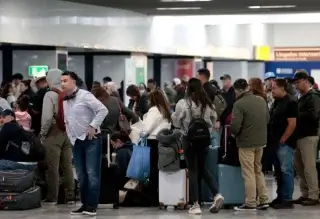read also
 Inflation in Romania Slows to 9.6% but Remains Above Forecast
Inflation in Romania Slows to 9.6% but Remains Above Forecast
 Riots in Mexico Disrupt Air Links to Resort Destinations
Riots in Mexico Disrupt Air Links to Resort Destinations
 UK House Prices Stabilise After 2025 Slowdown
UK House Prices Stabilise After 2025 Slowdown
 Israel Housing Market Eyes a Reset in 2026
Israel Housing Market Eyes a Reset in 2026
 Real Estate Investment Declines in Southeast Europe in 2025
Real Estate Investment Declines in Southeast Europe in 2025
 Asia Becomes the Engine of Global Aviation
Asia Becomes the Engine of Global Aviation
Turkish Real Estate Market Under Pressure: Inflation, Protests, and Investor Exodus

The Turkish real estate market is currently navigating a complex landscape marked by fluctuating inflation rates, political unrest, and shifting investor confidence. These factors collectively influence domestic and international investment trends, property valuations, and the overall economic climate.
Inflation Trends and Property Prices
As of March 2025, Turkey's annual consumer price inflation has decelerated to 38.1%, down from a peak of approximately 75% in May 2023. This decline suggests a stabilization in price levels across various sectors. Notably, the education sector experienced an 80.42% increase, and housing prices rose by 68.63% during this period.
In the real estate sector, the Residential Property Price Index (RPPI) indicated a nominal annual increase of 31.3% in February 2025. However, when adjusted for inflation, this translates to a real-term decrease of 5.6%, reflecting the nuanced impact of inflation on property valuations.
TCMB
Foreign Investment Dynamics
Foreign investment in Turkish real estate has seen a significant downturn. Foreign ownership of Turkish government bonds, which peaked above 25% in May 2013, has since declined to levels observed when President Erdogan first assumed office.
Concurrently, there is a growing trend of Turkish investors seeking property opportunities abroad. High domestic property prices, diminishing returns, and regulatory changes have prompted investments in countries like Montenegro, Spain, Dubai, and the United Kingdom. Overseas property investments have nearly quadrupled since 2021, with projections estimating a total of $3-4 billion by the end of 2024.
Political Unrest and Economic Implications
The arrest of Istanbul Mayor Ekrem Imamoglu in March 2025 has ignited widespread protests, marking the largest anti-government demonstrations in Turkey in over a decade. These events have led to mass arrests and heightened political tensions. President Erdogan has dismissed the protests as transient, while opposition groups and international observers view the situation as indicative of deeper political challenges.
This political instability has adversely affected the Turkish economy. The Turkish lira depreciated to a record low, prompting the central bank to raise its overnight lending rate by two percentage points to 46%. Businesses are reassessing investment plans, with some halting expansion due to increased borrowing costs and economic uncertainty.
Conclusion
The Turkish real estate market is at a crossroads, influenced by domestic economic policies, political developments, and global investment trends. While inflation shows signs of moderation, political unrest and declining foreign investment present challenges. Stakeholders must navigate these complexities to identify opportunities and mitigate risks in this evolving landscape


